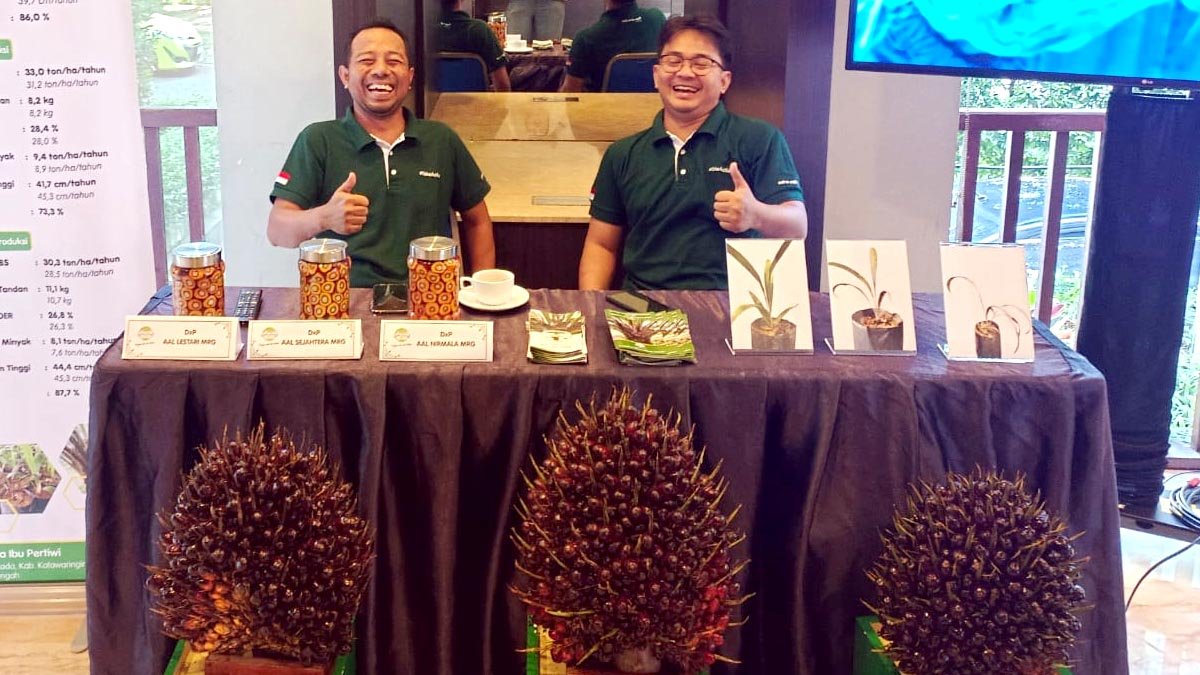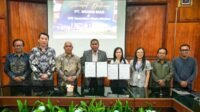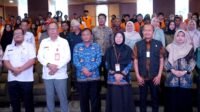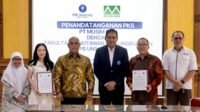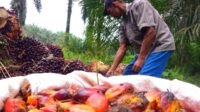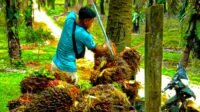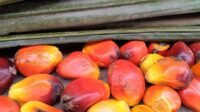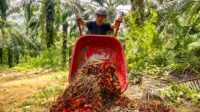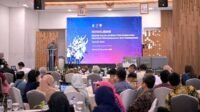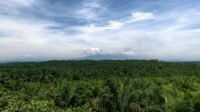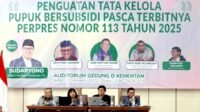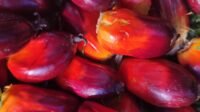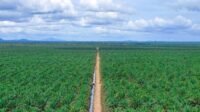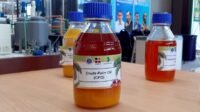PALMOILMAGAZINE, JAKART – As part of its strategic efforts to strengthen the resilience and sustainability of the national plantation sector, Indonesia’s Plantation Crop Variety Evaluation Team (TPV) has officially approved the release of six new superior crop varieties during the First Semester Varietal Release Meeting held over two days, May 14–15, 2025.
The meeting was chaired by Ebi Rulianti, Director of Plantation Seed Development and Chair of the TPV, together with members of the evaluation committee. The approved varieties include four oil palm varieties and two cacao varieties, resulting from collaborations between private plantation companies and national research institutions.
According to Ebi, the oil palm varieties came from two companies:
- PT Gunung Sejahtera Ibu Pertiwi (GSIP) submitted three varieties known for their moderate resistance to basal stem rot caused by the Ganoderma fungus.
- PT Socfin Indonesia (SI) proposed one variety characterized by high male flower production, crucial for improving pollination in production estates.
The two cacao varieties were jointly developed by PT Mars Symbioscience Indonesia (MSI) and the National Research and Innovation Agency (BRIN). These varieties offer high yield potential, optimal fat content, and broad adaptability to diverse agroclimatic conditions.
Also Read: Eco-Leadership in the Heart of Borneo: PPSMMB Sets a New Standard
“This release is more than just increasing the number of available varieties. It is a concrete response to field challenges, from plant disease resistance to improving production efficiency,” said Ebi. She emphasized that access to high-quality, adaptive planting materials is critical to ensuring long-term productivity and resilience, especially in the face of climate change and pest threats.
Acting Director General of Plantations, Heru Tri Widarto, praised the release, noting that all six varieties had undergone rigorous scientific evaluation. “This reflects our commitment to strengthening the national seed system and ensuring that farmers can access quality seeds suited to their real-world conditions,” he stated.
From a broader policy perspective, Minister of Agriculture Andi Amran Sulaiman described the release as a significant milestone in enhancing the competitiveness of Indonesia’s plantation sector. He highlighted that this success stemmed from the collaboration between the government, businesses, and research institutions.
“These new varieties are a testament to the power of innovation in driving sustainable plantation development. We hope farmers and industry players will adopt these varieties widely to boost productivity and improve livelihoods,” the Minister concluded. (P3)

